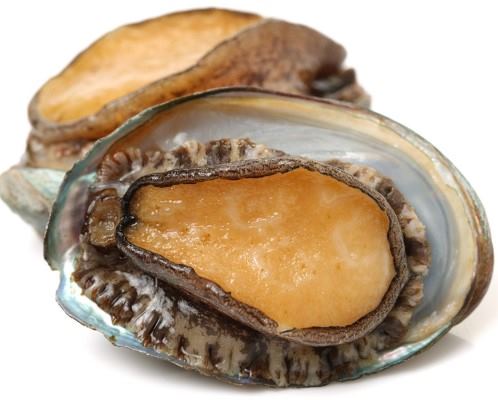

Yes, cooked abalone is safe for dogs, and feeding them this seafood can bring a range of health benefits. Abalone contains calcium, phosphorus, and potassium, which are essential for proper bone development and liver functions. This seafood is also a significant source of EPA and DHA omega-3 fatty acids, which reduce the risk of heart disease, joint pains, and tumors. However, owing to its high potassium content, abalone should be served sparingly as excessive quantities can cause heart and renal issues. Raw abalone may also contain toxins and bacteria, posing further health risks.
Feeding cooked abalone to your dog can bring a range of health benefits. Abalone is rich in calcium, phosphorus, and potassium, which are essential for bone growth and development, and also support liver functions and metabolic elements. Abalone also contains EPA and DHA omega-3 fatty acids, which can lower the risk of dogs developing cardiovascular diseases, joint pains, and tumors. It is also a source of iodine, which promotes proper thyroid function.
Abalone is quite high in potassium, and ingesting it in large amounts can cause heart and renal problems. Moreover, although omega-3 fatty acids are beneficial to dogs, excessive amounts of it can cause a blood-thinning effect. Abalone can also trigger allergic reactions in certain dogs, so it is best avoided if your dog has a history of allergies. Raw abalone may contain toxins and bacteria which can lead to food poisoning. Abalone shells can also cause choking and intestinal blockage when ingested.
When serving abalone to your dog, be sure to remove it from its shell and cook it thoroughly. Feed your dog abalone in small amounts occasionally, with no more than 100 grams for fully mature adult dogs.
Abalone is a type of shellfish commonly found in the waters along the coast of Australia, New Zealand, British Columbia, and California. This edible aquatic animal has several names depending on the geographical location; it is commonly referred to as ormer in the UK, perlemoen in South Africa, and pāua in New Zealand.
Cooked abalone is safe for dogs and provides a range of health benefits. Due to its high potassium content, abalone should be served sparingly, however, as excessive quantities cause heart and renal problems – eating it raw can also be hazardous due to toxins and bacteria. When serving abalone to your dog, be sure to remove it from its shell and cook it thoroughly – no more than 100 grams for fully mature adult dogs.
Other seafood options suitable for feeding to dogs are tilapia and mackerel, as these are low in mercury and are a good source of lean proteins. Sardines, which are rich in omega-3 fatty acids, are also a beneficial and tasty alternative.
Are there any other benefits of feeding my dog abalone? Is abalone easy to access?
Yes, apart from providing essential minerals and vitamins, feeding abalone to your dog is also thought to reduce the risk of cancer, skin issues, and cognitive decline. Abalone is available in certain supermarkets and specialized outlets, however, it can also be more expensive compared to your average pet food supply.
How has your pet enjoyed abalone in the past? Let us know in the comments below!
Fetching your pet some quality seafood helps keep them healthy and provides them with the essential minerals and vitamins they need. Experimenting with different types of seafood is also a fun way to provide nutritional variety. So why not give them some abalone and see how they like it!